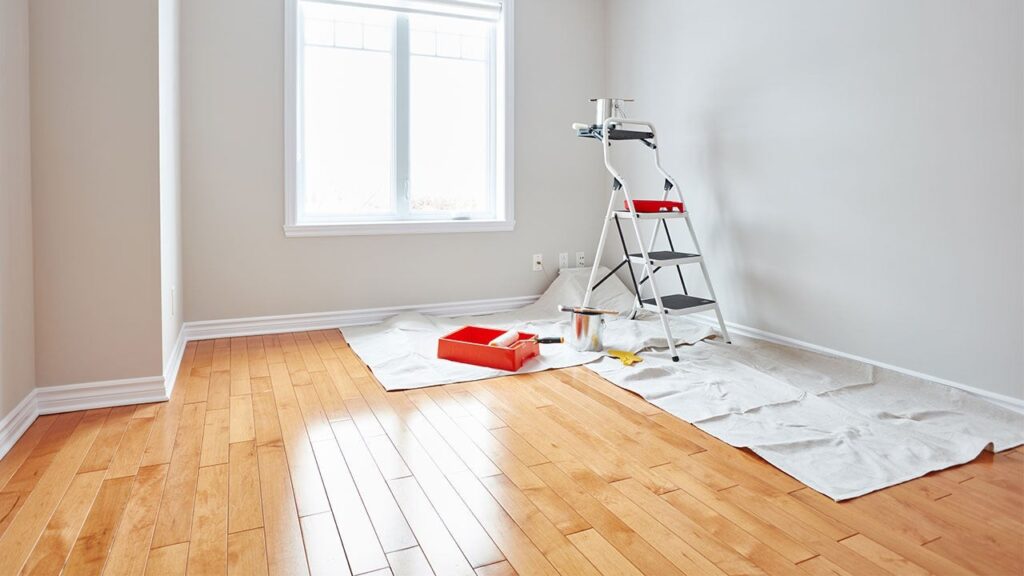Embarking on a home remodeling project can be an exciting and rewarding experience. However, without proper planning and research, it can quickly turn into a nightmare. In this blog post, we will discuss some common mistakes that homeowners make during the remodeling process and the valuable lessons we can learn from renovation disasters.
Lack of Planning and Research
One of the biggest mistakes homeowners make is diving headfirst into a remodeling project without adequately planning and researching. This can lead to many issues down the line, including delays, cost overruns, and unsatisfactory results.
Before starting any remodeling project, it’s essential to carefully plan every aspect. Consider your goals, budget, and timeline. Research different materials, designs, and contractors to make informed decisions. By investing time in planning and research, you can avoid costly mistakes and ensure a successful huntington beach kitchen remodeling.
Hiring the Wrong Contractor
The contractor you hire plays a crucial role in the success of your remodeling project. Unfortunately, many homeowners make the mistake of hiring the wrong contractor, leading to subpar workmanship, communication issues, and project delays.
When hiring a contractor, it’s vital to do your due diligence. Ask for recommendations from friends and family or check online reviews. Interview multiple contractors and ask for references. Ensure that the contractor is licensed, insured, and has experience in the type of remodel you’re undertaking. By choosing the right contractor, you can avoid unnecessary headaches and ensure the quality of work.
Underestimating the Budget
One of the most common mistakes homeowners make is underestimating the budget for their remodeling project. Whether it’s unexpected expenses or scope creep, going over budget can cause significant stress and financial strain.
When creating a budget for your remodel, be realistic and include a contingency fund for unforeseen costs. Research the average costs for materials and labor in your area. Get multiple quotes and factor in any potential additional expenses. By accurately estimating your budget, you can avoid financial stress and ensure that your project stays on track.
Ignoring Proper Permits and Codes
Obtaining the necessary permits and adhering to building codes is another critical aspect of a successful remodeling project. Neglecting this step can lead to fines, delays, and even legal consequences.
Before starting your remodel, research the permits required for your project. Familiarize yourself with local building codes and regulations. Work with your contractor to ensure that all necessary permits and inspections are obtained. By following proper procedures, you can avoid costly setbacks and ensure that your remodel is safe and up to code.
Overlooking Structural Issues
Another costly mistake homeowners make is overlooking structural issues during a remodel. Failing to address these issues can lead to further damage and costly repairs in the future.
Before beginning any cosmetic changes, have a professional assess the condition of your home’s structure. Identify any structural issues, such as faulty foundations, sagging roofs, or deteriorating walls. Addressing these issues upfront will provide a solid foundation for your remodel and prevent more extensive problems down the line.
Misjudging the Timeline
It’s important to have a realistic timeline for your remodeling project. Many homeowners make the mistake of underestimating the time required to complete the remodel, leading to frustration and inconvenience.
Consult with your contractor to establish a realistic timeline for your project. Consider factors such as permits, inspections, material delivery, and unexpected delays. By understanding the time required, you can plan accordingly and minimize disruption to your daily life.
Choosing Trendy Design Over Functionality
While it’s tempting to follow the latest design trends, it’s crucial to prioritize functionality in your remodel. Ignoring functionality can result in a beautiful but impractical space that doesn’t meet your needs.
Before making design choices, consider how you will use the space and what features are essential to you. Think about your lifestyle, future needs, and practicality. While incorporating some trendy elements can add visual interest, ensure they align with your functional requirements.
Neglecting Energy Efficiency
Energy efficiency is an essential consideration during a home remodel. Neglecting this aspect can result in higher energy bills and harm the environment.
Research energy-efficient options for lighting, appliances, windows, and insulation. Consider incorporating renewable energy sources such as solar panels. By prioritizing energy efficiency, you can reduce your carbon footprint and save on utility costs in the long run.
Overcrowding Spaces
When remodeling, it’s important to consider the flow and functionality of your space. Overcrowding rooms with unnecessary furniture or fixtures can make them feel cramped and uncomfortable.
Take the time to plan the layout of each room and consider the purpose of the space. Optimize storage solutions to declutter and maximize usable space. By creating an open and well-designed layout, you can enhance the functionality and appeal of your home.
Skipping Essential Upgrades or Repairs
Consequences of Skipping Upgrades or Repairs
One mistake homeowners often make is skipping essential upgrades or repairs during a remodel. While it may seem tempting to save money in the short term, neglecting necessary improvements can lead to more significant issues and expenses in the future.
Skipping upgrades or repairs can result in decreased property value, reduced comfort, and potential safety hazards. It’s important to address any existing problems or outdated systems to ensure the longevity and functionality of your home.
Common Upgrades and Repairs That Shouldn’t Be Skipped
When planning your remodel, consider common upgrades or repairs that should not be skipped:
- Electrical and plumbing updates
- HVAC system maintenance or replacement
- Roof repairs or replacements
- Foundation inspections and repairs
- Waterproofing and insulation improvements
The Importance of Regular Maintenance
In addition to addressing immediate repairs and upgrades, it’s essential to prioritize regular maintenance in your home remodeling plans. Regular maintenance helps prevent costly issues and extends the lifespan of your home’s components.
Consider creating a maintenance schedule for tasks such as gutter cleaning, HVAC system maintenance, and roof inspections. By staying on top of maintenance, you can catch minor problems before they escalate into major repairs.
Budget-friendly Upgrades and Repairs
If budget constraints are a concern, there are still several budget-friendly upgrades and repairs you can consider:
- Repainting walls for a fresh look
- Replacing outdated fixtures and hardware
- Adding energy-efficient lighting
- Installing programmable thermostats
- Sealing air leaks and improving insulation
Long-Term Benefits of Completing Upgrades and Repairs
Completing necessary upgrades and repairs during your remodel can bring long-term benefits, including:
- Increased property value
- Improved energy efficiency
- Enhanced safety and comfort
- Reduced maintenance and repair costs
- Peace of mind knowing your home is in good condition
Poor Communication with Household Members
Effective communication is crucial when undertaking a home remodeling project, especially if multiple household members are involved. Failing to communicate and align expectations can lead to misunderstandings, disagreements, and delays.
Prioritize open and transparent communication with all household members. Discuss goals, timelines, and budget constraints to ensure everyone is on the same page. Regularly communicate with your contractor to address any concerns or changes throughout the project.
Failing to Identify and Address Health and Safety Concerns
The health and safety of your household should be a top priority during a home remodel. Failing to identify and address potential health and safety concerns can lead to accidents, injuries, and long-term health issues.
Before beginning your remodel, conduct a thorough assessment of your home. Look for potential hazards such as asbestos, lead-based paint, or mold. If you suspect any health or safety risks, consult with professionals and take necessary precautions to mitigate them. Your well-being should never be compromised for the sake of a remodel.
Neglecting Maintenance and Future Proofing
Once your remodeling project is complete, it’s essential to continue maintaining your home and future-proofing it to avoid future problems.
Regularly inspect and maintain your home’s components to prevent deterioration and catch minor issues before they become major repairs. Additionally, consider incorporating future-proofing elements, such as wiring for smart home technology or adaptable design features that can accommodate changing needs and trends.
Disregarding Personal Lifestyle and Future Needs
Lastly, homeowners often make the mistake of disregarding their personal lifestyle and future needs when remodeling their homes. Failing to plan for the future can result in a space that quickly becomes outdated or no longer meets your needs.
Whether you’re planning to expand your family, work from home, or age in place, consider your long-term goals and needs when remodeling. Create flexible spaces that can adapt to changing circumstances and incorporate design choices that will stand the test of time.
By avoiding these common home remodeling mistakes and learning from the lessons of renovation disasters, you can ensure a successful and satisfying remodel that enhances your home’s beauty, functionality, and value.

